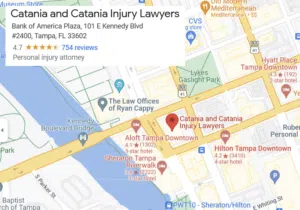
A crushing injury happens when your body gets compressed. Crushing injuries can lead to tissue damage and complications that can last for the rest of your life.
Crushing injuries can happen in almost any type of accident. Your leg could get crushed in a theme park accident. Your hand might get crushed by a machine in your workplace. A falling object at a store could crush your foot.
Here is some information about crushing injuries and the compensation you can seek for their effects.
Table of Contents
How Do Crushing Injuries Happen?

Crushing injuries occur when a body part gets compressed between two surfaces. The compression force could result from the weight of an object. The crushing force of a car rolling over your foot in a pedestrian accident comes from the car’s weight.
It can also happen due to a mechanical force. The crushing force from a factory machine in a workplace accident comes from the engine, hydraulics, or mechanical system moving the machine’s parts.
One of the greatest risks of crushing forces is suffocation. Crushing forces on the chest can prevent the lungs from expanding. This prevents the accident victim from breathing. Even brief suffocation can cause brain damage as the brain is deprived of oxygen. A longer period of suffocation will lead to death.
Crushing injuries compress soft tissue. As a result, blood vessels can get pinched, nerves get damaged, and muscles, tendons, and ligaments get stretched or torn.
Crushing injuries can also shatter bones. As the bones shatter, they can cause additional damage as the bone fragments tear into the soft tissue.
What Are the Short-Term Effects of a Crushing Injury?
The burst blood vessels from crushing injuries almost always lead to bruises at the site of the injury. Crushing forces can tear the skin. This can lead to bleeding at the injury site and create a risk of infection.
Blood delivers oxygen and nutrients to the muscles and carries away carbon dioxide. As a result, the loss of circulation can lead to tissue death.
When nerves get damaged, the signals that normally travel along the nerves get disrupted. As a result, you might lose sensory signals traveling to the brain and motor signals traveling to the damaged area.
Some symptoms of nerve damage include:
- Pain
- Numbness or tingling
- Loss of sensitivity to touch or temperature
- Paralysis
- Weakness
- Loss of coordination
The crushing forces can shatter bones. The compression of bones is more likely to break bones into multiple pieces rather than snapping them cleanly.
Shattered bones often require surgery to repair. Surgeons use plates and screws to rebuild the shattered bone. If pieces are missing, surgeons might use bone grafts to fill in the missing pieces. If the pieces are too small to reconstruct or too many pieces are missing, a doctor may recommend amputation.
Bone fragments can damage soft tissue. Specifically, a crushing force can shatter a bone, then grind the bone fragments into the soft tissue. These bone fragments can tear into the soft tissue and sever blood vessels, muscles, and nerves.
What Are the Long-Term Effects of a Crushing Injury?
Crushing injuries can produce effects that last long after the injury. Some complications that can arise from crushing injuries include:
Compartment Syndrome
Damaged tissue will get inflamed. Inflammation happens as a natural step in the body’s immune response. Inflammation can produce pain and inhibit healing.
In extreme cases, inflammation can cut off the blood supply to tissue. As the inflamed tissue swells, it can squeeze the blood vessels in the damaged area, depriving cells downstream of their blood supply. This creates a “compartment” of cells that are starved of oxygen and nutrients.
Compartment syndrome can kill the tissue that gets cut off from the body’s blood supply.
Blood Clots
Blood coagulates to stop bleeding and protect damaged tissue. But if blood clots break off, they can travel through the bloodstream to the heart, lungs, or brain. They can become lodged in the blood vessels in those organs, blocking the blood supply.
If the blood clot travels to the heart, you might suffer a heart attack. If the blood clot travels to the brain, you could have a stroke. If the blood clot reaches the lungs, you get a pulmonary embolism. These conditions can be fatal.
Crush Syndrome
Crush syndrome is a potentially fatal condition that can develop after a crush injury. In some cases, the accident victim seems to have recovered from the crush injury when crush syndrome causes severe illness or death.
The tissue destroyed by the crushing forces will release toxins into the bloodstream. Additionally, the dead cells will enter the bloodstream. Your kidneys will work hard to filter all these toxins and dead cells from your blood.
In some cases, the kidneys will become overworked and shut down. You could become seriously ill or die from renal failure when this happens.
What Are the Risk Factors for a Crushing Injury?
Some types of accidents have a heightened risk of a crushing injury, including:
Car Accidents
Not all car accidents have the force to crush. But if your vehicle gets hit on the side or in the front, the door or firewall could collapse and crush you. Similarly, a rollover accident could cause the roof to collapse, resulting in crushing injuries.
Workplace Accidents
Workplaces can produce crushing injuries in many ways, including:
- Falling or dropped objects
- Moving machine parts
- Vehicles, forklifts, and carts
Workplace accidents can also happen on construction sites, where everything from building collapses to falling tools can cause a crushing injury.
What Compensation Can I Recover for a Crushing Injury?
Crushing injuries require a lot of medical treatment. Doctors might need to reconstruct bones to try to repair the damage from the crushing injury. But doctors might be unable to repair severe damage to blood vessels and nerves. You might have permanent damage or even lose the crushed body part.
You might also miss substantial time from work. Your compensation can include the income you lose as a result of your injuries.
In many cases, you can obtain compensation for pain and suffering. These damages are intended to compensate you for your diminishment in quality of life. With a crushing injury, you might lose the use of a body part or suffer permanent disabilities. These could justify large pain and suffering damages.
Contact a Tampa Personal Injury Lawyer for Help
To learn more about the compensation you can seek for your crushing injuries, contact Catania and Catania Injury Lawyers or call (813) 222-8656 for a free consultation. Our personal injury lawyers in Tampa, FL will help you walk through the facts of your accident, provide an estimate of the value of your case, and determine your next steps to move forward.




